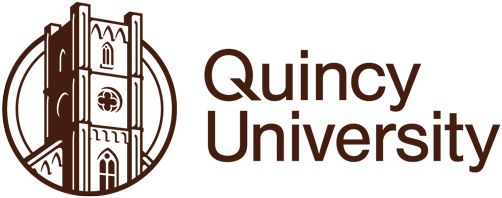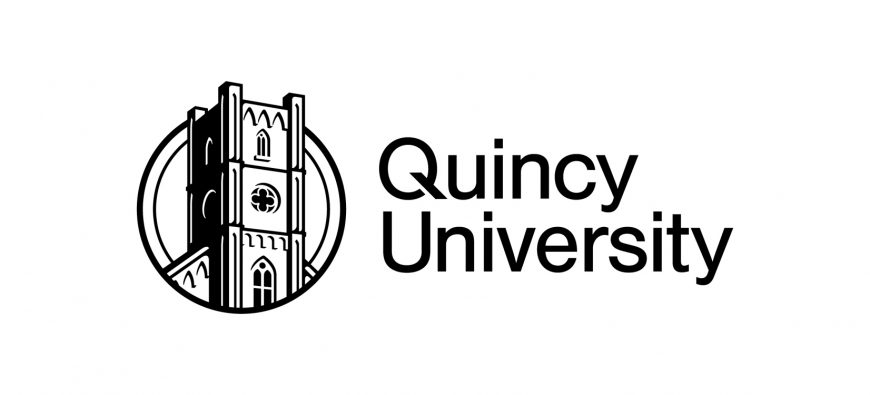
QU Alumnus Ajayi ’19 Building Bonds in Haiti
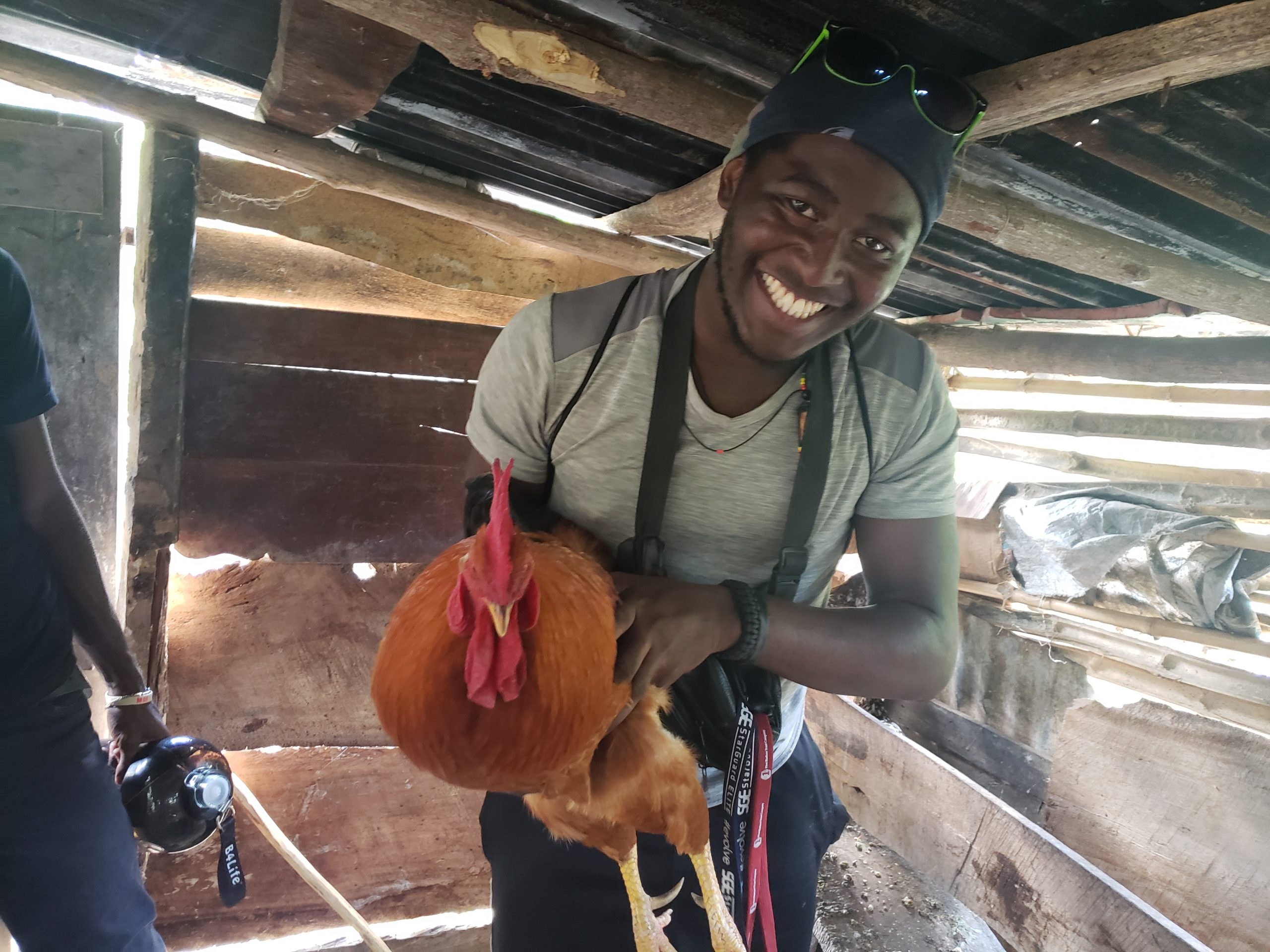 Oluwatimilehin John Ajayi ’19, “Timi”, first stepped onto Haiti soil in 2018, along with fellow Quincy University and Eastern Illinois University students. On his second visit to Haiti, he came in touch with the people from the program, Religious Jesus Mary (RJM) Quest. Timi spoke to them directly to see if there was an opportunity to work for them after he graduated. They encouraged him to go on their site and fill out the application. Timi did, and two weeks after he submitted his application, they notified him that he got the job.
Oluwatimilehin John Ajayi ’19, “Timi”, first stepped onto Haiti soil in 2018, along with fellow Quincy University and Eastern Illinois University students. On his second visit to Haiti, he came in touch with the people from the program, Religious Jesus Mary (RJM) Quest. Timi spoke to them directly to see if there was an opportunity to work for them after he graduated. They encouraged him to go on their site and fill out the application. Timi did, and two weeks after he submitted his application, they notified him that he got the job.
When Timi arrived in Haiti this past year, he started working with the sustainable poultry farming program. A part of this program is the soybean project, a project geared to implement new protein sources in communities and produce nutrient-rich chicken feed. In coordination with researchers in the U.S. and Africa, the project workers planted the first soybean crop in Haiti on four different fields this fall. The project includes the distribution of soybean seeds to local communities and educating them on how to grow soybeans. Ultimately, the project workers will teach the communities how to use soybeans for food, like tofu.
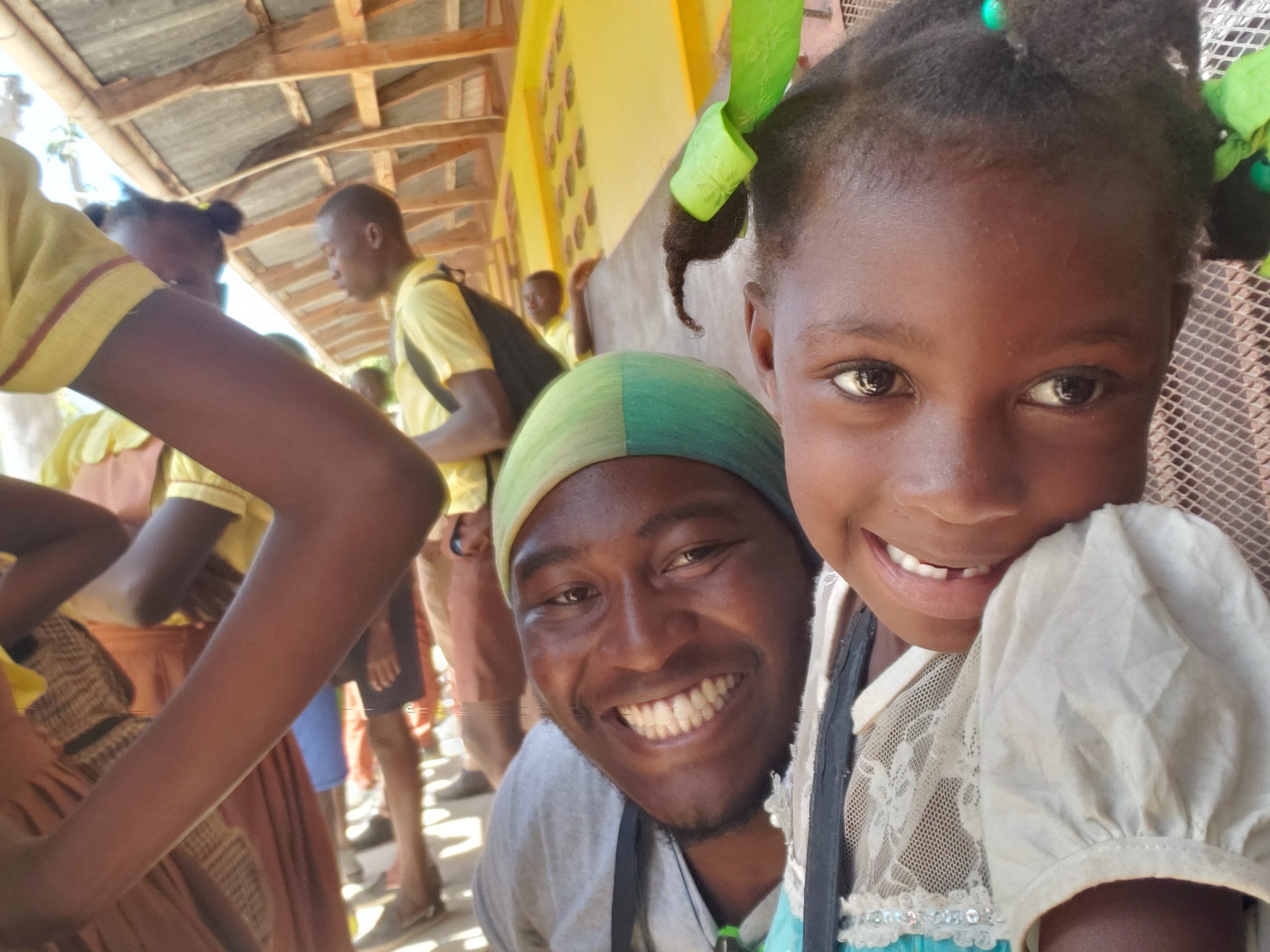 The organization that Timi works for houses a school, and started raising chickens to provide the children with at least one protein-rich meal a day. According to an article in the Current Developments in Nutrition, Volume 3, published in June 2019, Haiti has the highest rate of childhood malnutrition in the western hemisphere. Along with feeding their students, the organization also sells a portion of the eggs to local restaurants and uses the profits to replace hens and purchase feed.
The organization that Timi works for houses a school, and started raising chickens to provide the children with at least one protein-rich meal a day. According to an article in the Current Developments in Nutrition, Volume 3, published in June 2019, Haiti has the highest rate of childhood malnutrition in the western hemisphere. Along with feeding their students, the organization also sells a portion of the eggs to local restaurants and uses the profits to replace hens and purchase feed.
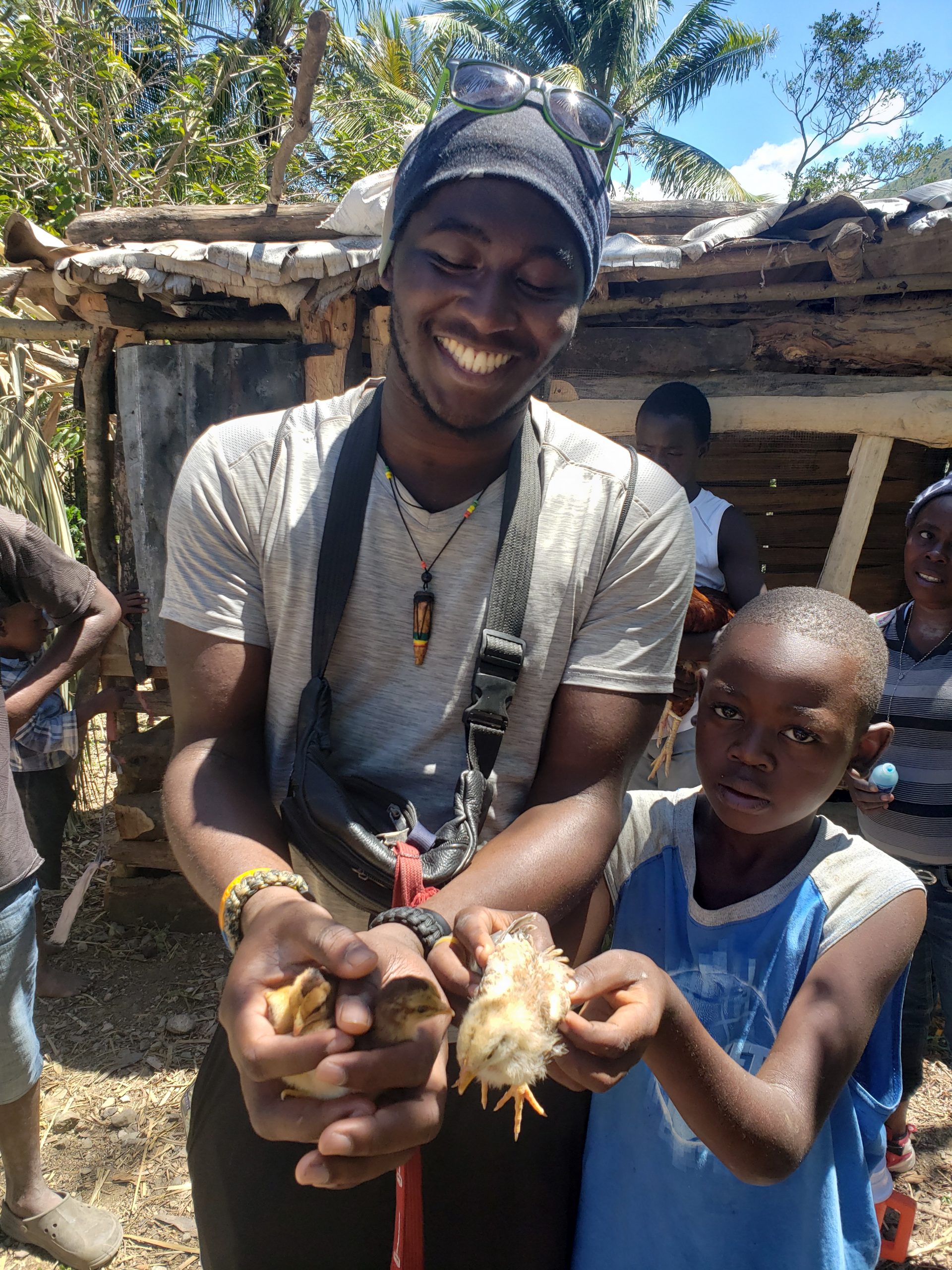 Since soybean meal is the dominant protein supplement used in poultry diets, they realized that if they could grow soybeans in Haiti, feeding the chickens would not cost as much. Egg production provides economic stimulation, increases local food security, and is a cheap source of protein. The program began as a simple act to help alleviate the lack of food for the children in their care. Now they are helping whole communities care for chickens. The project started with 90 people and now includes 250 people from several communities. Participating members receive a rooster for their hen.
Since soybean meal is the dominant protein supplement used in poultry diets, they realized that if they could grow soybeans in Haiti, feeding the chickens would not cost as much. Egg production provides economic stimulation, increases local food security, and is a cheap source of protein. The program began as a simple act to help alleviate the lack of food for the children in their care. Now they are helping whole communities care for chickens. The project started with 90 people and now includes 250 people from several communities. Participating members receive a rooster for their hen.
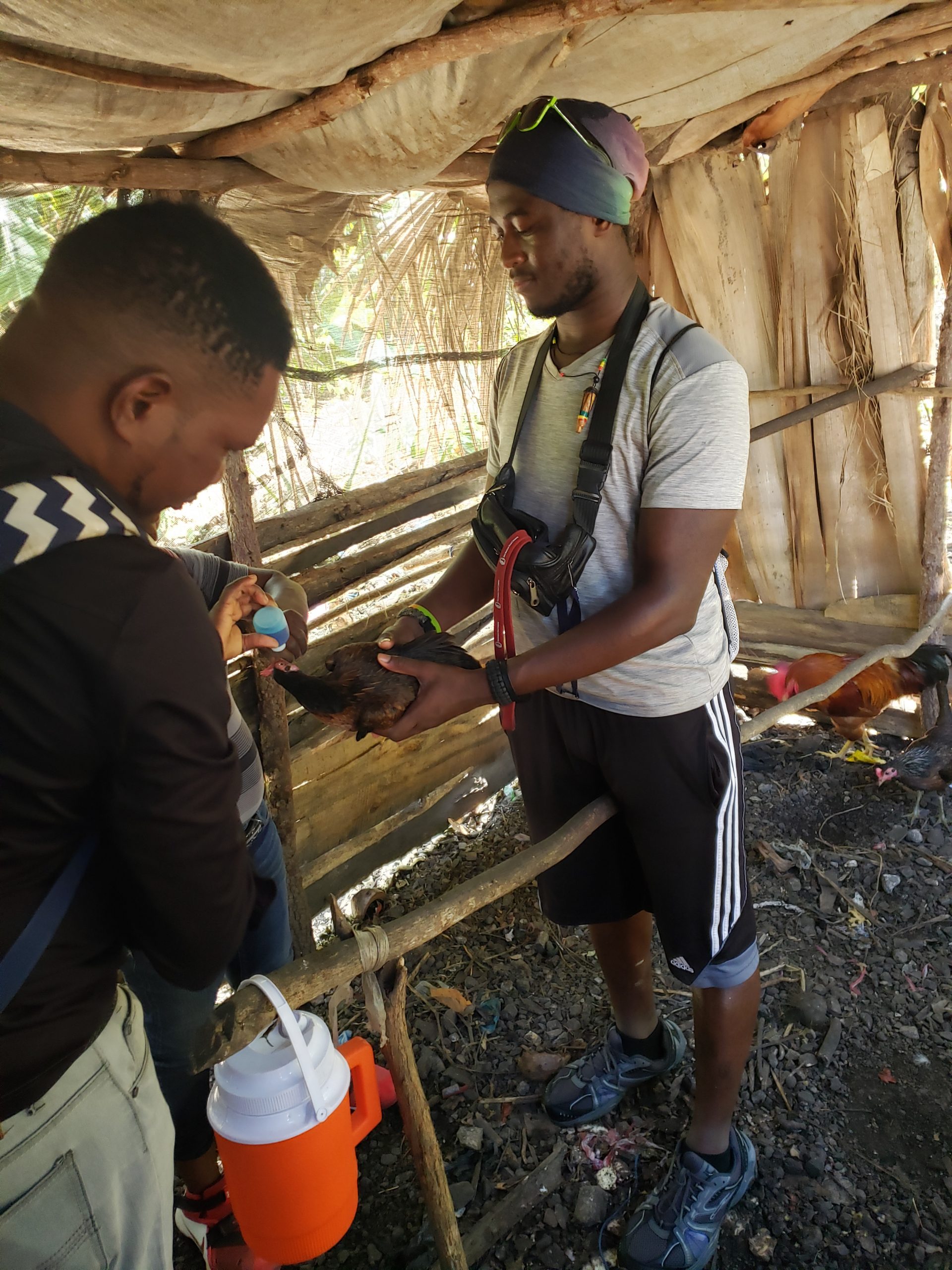 After spending the winter months in the U.S., Timi returned to Haiti briefly. While he was there, he hiked to communities that were a part of the sustainable poultry farming program. On this trip, the workers immunized the chickens for them to be bacteria-free. As he hiked to different communities, he distributed the hygienic products donated by the QU campus community. Before he returned to the States, he also checked on the soybean crop. Originally they planted two different soybean varieties totaling 5,000 seeds, and they harvested 12,000 good seeds.
After spending the winter months in the U.S., Timi returned to Haiti briefly. While he was there, he hiked to communities that were a part of the sustainable poultry farming program. On this trip, the workers immunized the chickens for them to be bacteria-free. As he hiked to different communities, he distributed the hygienic products donated by the QU campus community. Before he returned to the States, he also checked on the soybean crop. Originally they planted two different soybean varieties totaling 5,000 seeds, and they harvested 12,000 good seeds.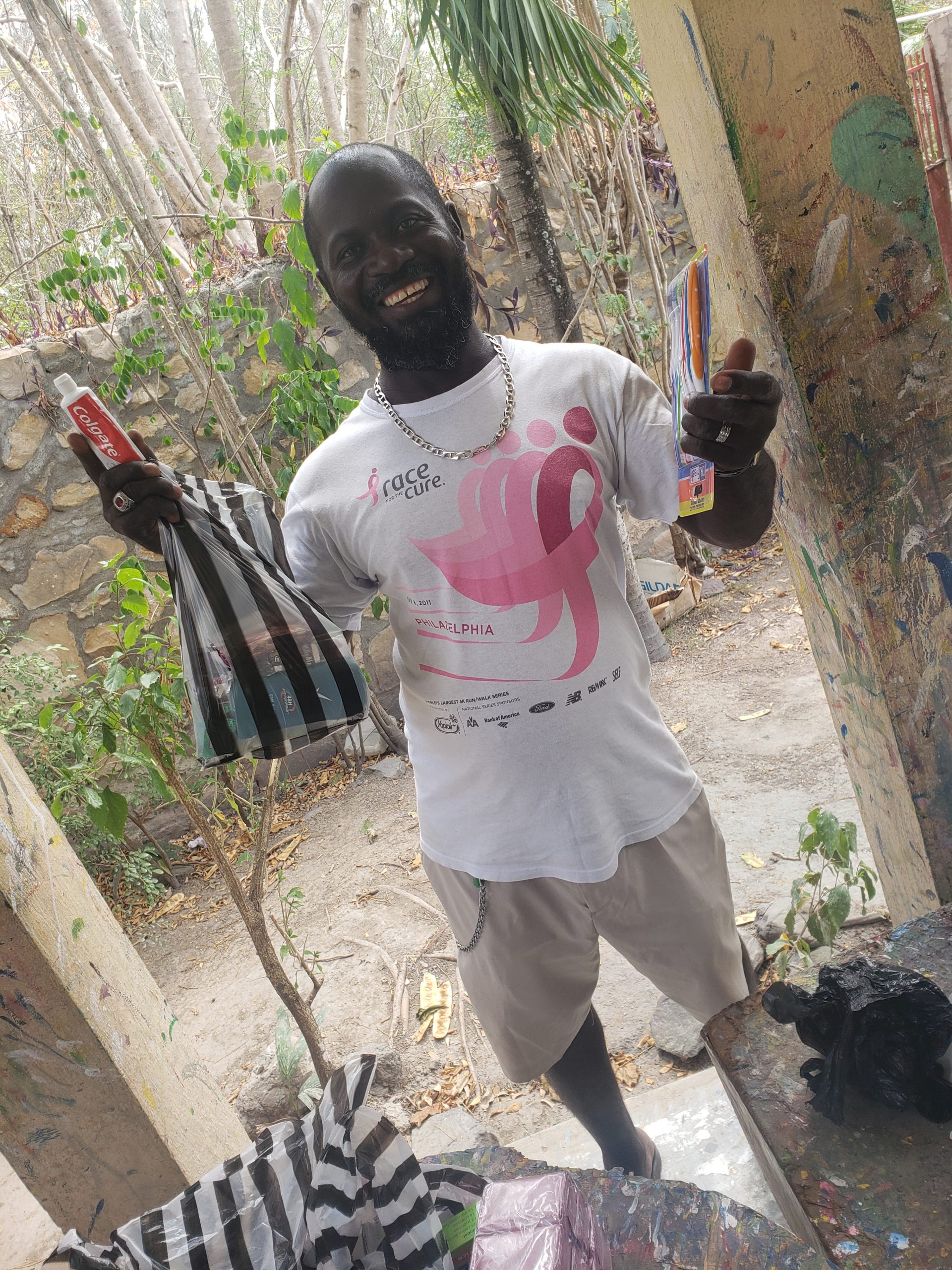
Timi has learned a lot from his time in Haiti and the Haitian people. His time abroad has taught him to look at life differently than before. “As you journey through service and mission work, you meet a lot of people that help shape you physically, mentally, and emotionally,” said Timi. “Our time, gifts, and talents are not just for making money, but they are for building bonds that far exceed materialistic resources.”
The Coronavirus pandemic disrupted Timi’s plans, but he hopes to return to Haiti as soon as he can.
